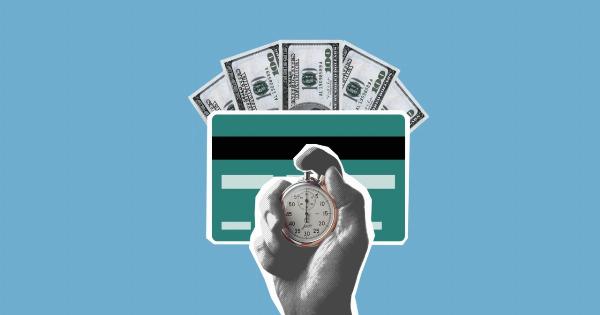Relationships can be incredibly complex, and there are countless factors that can contribute to their success or downfall.
While every breakup is unique, data analysis provides valuable insights into patterns and common reasons for relationships coming to an end. By examining data and identifying recurring patterns, we can gain a better understanding of the various factors that contribute to breakups.
This article will delve into the data-driven reasons behind breakups, shedding light on some of the common elements that can lead to relationship breakdowns.
1. Lack of Communication
Communication is the cornerstone of any healthy relationship. However, a lack of effective communication is one of the leading causes of breakups.
Research suggests that couples who struggle with communication issues are more likely to experience dissatisfaction, misunderstandings, and a breakdown of trust.
Open and honest communication involves actively listening, expressing thoughts and emotions without judgment, and maintaining a safe and non-confrontational space for dialogue.
Without it, resentments and unresolved issues can fester, ultimately leading to the demise of the relationship.
2. Infidelity and Trust Issues
Infidelity is a major breach of trust and often acts as a catalyst for breakups. Studies indicate that infidelity is a leading cause of relationship dissatisfaction and can create long-lasting emotional trauma for both partners involved.
The betrayal of trust, coupled with feelings of betrayal and abandonment, can bring an abrupt end to even the most solid relationships.
Trust is the foundation of any healthy relationship, and without it, couples may struggle to rebuild and repair the damage caused by infidelity.
The continuous fear and insecurity associated with trust issues often prove too much for the relationship to sustain.
3. Incompatible Goals and Values
While shared goals and values are not necessary for every successful relationship, vast differences in these areas can greatly strain a partnership, leading to breakups.
Whether it’s differences in financial aspirations, religious beliefs, or desired lifestyles, misaligned goals and values can create a perpetual state of conflict and disconnection.
When partners have fundamentally different visions for their future, compromise becomes increasingly challenging. Resentment and frustration can build over time, eroding the foundation of the relationship and ultimately resulting in a breakup.
4. Lack of Emotional Intimacy
Emotional intimacy involves establishing a deep emotional connection with a partner, sharing vulnerabilities, and feeling genuinely understood and supported.
Without emotional intimacy, relationships can feel shallow and unfulfilling, leading to feelings of loneliness and dissatisfaction.
Partners who feel emotionally neglected or unheard often seek gratification outside the relationship, further contributing to relationship breakdowns.
The absence of emotional connection can drive partners apart, making them more susceptible to external temptations and ultimately resulting in the end of the partnership.
5. Constant Conflict and Disagreements
While a certain amount of conflict is normal in relationships, constant and unresolved disagreements can create a toxic environment that breeds negativity and resentment.
Couples who experience frequent arguments and are unable to effectively resolve conflicts may find themselves trapped in a cycle of negativity, leading to emotional exhaustion and ultimately a breakup.
Studies indicate that effective conflict resolution and the ability to find common ground are crucial for relationship satisfaction and longevity.
Couples who can navigate through disagreements in a healthy and respectful manner are more likely to maintain a strong and lasting bond.
6. Lack of Intimacy and Affection
Intimacy and affection play essential roles in nurturing romantic relationships. Physical intimacy, including sexual connection and non-sexual affection, can strengthen the emotional bond between partners.
When intimacy wanes, partners may feel disconnected, unloved, and unfulfilled.
A lack of physical or emotional intimacy can lead to feelings of resentment and fuel the desire for closeness outside the relationship.
Ultimately, the absence of intimacy can erode the foundation of a relationship, driving partners away from each other and towards a breakup.
7. Financial Strain
Financial stress can significantly impact a relationship, often driving partners apart. Money-related conflicts and economic strain can lead to constant arguments, feelings of inequality, and resentment.
Financial disagreements can also expose underlying power imbalances and create an environment of insecurity and instability.
Additionally, financial hardships can limit experiences and put strain on shared future plans, further contributing to relationship dissatisfaction.
The consistent stress of financial strain can become overwhelming, leading couples to consider separation as a solution.
8. Lack of Quality Time
In our fast-paced and busy world, it is easy for couples to neglect spending quality time together. However, this lack of connection can take a toll on the relationship, leading to feelings of neglect and emotional distance.
Quality time involves being fully present with your partner, engaging in meaningful activities together, and creating space for genuine conversation and connection.
Without it, partners may feel undervalued or unimportant, ultimately questioning the longevity of the relationship.
9. Family and Cultural Differences
Differing family backgrounds or cultural values can place significant strain on a relationship.
Partners who come from contrasting family dynamics or cultural contexts may experience difficulties in understanding and accepting each other’s backgrounds.
These differences can manifest in various ways, including conflicting expectations around gender roles, parenting styles, or relationship dynamics.
Failure to navigate these differences can lead to feelings of resentment, isolation, and a growing sense of incompatibility.
10. Loss of Individual Identity
In healthy relationships, it is crucial for each partner to maintain a sense of individual identity and personal growth.
However, when one or both partners become excessively dependent on the relationship, it can lead to feelings of suffocation and stagnation.
Loss of individual identity can accumulate over time, causing partners to feel trapped or disconnected from their sense of self.
The lack of personal growth can lead to a lack of fulfillment within the relationship, ultimately pushing partners towards a breakup in search of personal autonomy.































